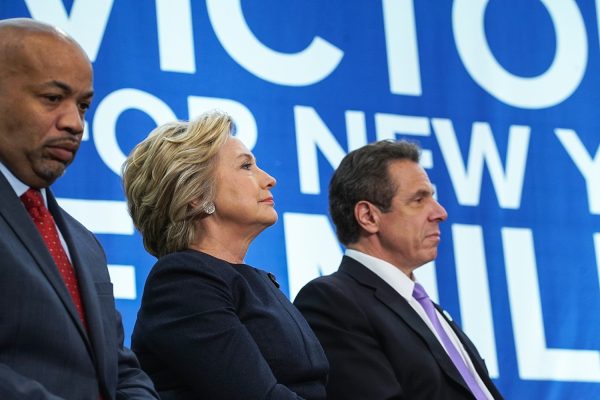
You may remember that in 2016, we interpreted both the Democratic and Republican primaries in the United States through the prism of “the party decides” theory, which argues that party elites — including elected and party officials, interest group leaders and other partisan figures — coordinate before presidential nominating contests in order to help their preferred candidate win.
Or, as The Economist pithily summarized the argument: parties tell the electorate how to vote, rather than voters telling the party whom to support.
That obviously didn’t happen in the Republican Party, where elites failed to stop Donald Trump.
Democratic elites (everyone from the chair of the Democratic National Committee to local union bosses) did coalesce around Hillary Clinton, but many voters didn’t listen: 43 percent backed Bernie Sanders.
This year, public endorsements from Democratic Party figures are slower than usual, suggesting that — like Republicans four years ago — “the” party is reluctant to decide.
Why?
Marty Cohen, David Karol, Hans Noel and John Zaller, the four political scientists who came up with the party-decides theory from analyzing presidential primaries up to the year 2000, explain why:
- Media coverage, public debates and fundraising take place much earlier in the election cycle, competing with elite influence.
- The “invisible primary” (the period before the Iowa caucuses) is no longer so invisible. It is now a 24-7 in-your-face media event
- Candidates lacking insider validation have no trouble raising enough money to make themselves competitive. Billionaires, like Michael Bloomberg and Tom Steyer, can self-fund their campaigns. Others, like Elizabeth Warren and Bernie Sanders, rely on millions of small Internet donations.
Less incentive
The result is that neither candidates nor the voters need party elites as much as they used to.
It is one thing to follow the recommendation of your governor or union or church leader when you have no other source of information — and quite another when you have been exposed to months of steady, and sometimes even saturated, coverage.
That, in turn, means governors, union and church leaders have less incentive to stick their necks out. When their voters, members and congregates are at least as well informed as they are, there is a risk that coming out for or against a candidate will alienate their followers and hurt their own position.
